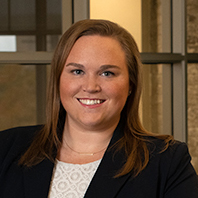Deducting Partnership Business Expenses
 Posted by Kerry Roets on April 29, 2024
Posted by Kerry Roets on April 29, 2024
While conducting partnership business, partners often find themselves shouldering various expenses. This is particularly common in service-oriented partnerships such as those in architecture or law. For instance, partners may incur costs associated with client entertainment, transportation for meetings, professional development materials, and home office expenses. Understanding the tax implications of such expenditures is crucial. Here’s a breakdown:
Reimbursable Expenses
Partners can deduct business expenses on Schedule E of Form 1040 if these align with the partnership agreement or firm policy, whether formal or informal, that mandates partners to bear such costs without reimbursement. Conversely, if the partnership would have reimbursed the expenses upon request, they are not deductible by the partner.
Suppose you’re a partner in an architecture firm where partners are responsible for soliciting new business, except in specific circumstances defined by the partnership agreement. If you spend $4,500 on client meals without reimbursement, you can deduct $2,250 (50% of $4,500) on Schedule E and include it as a deduction on Schedule SE for self-employment income.
Clear Firm Policy
To avoid ambiguity regarding the deductibility of unreimbursed partnership expenses, it’s advisable for partnerships to establish a written policy delineating what expenses will or will not be reimbursed. This ensures partners can confidently claim deductions without facing scrutiny from tax authorities.
Home Office Deductions
Partners can deduct expenses related to a home office used exclusively for partnership business, subject to standard deduction limits. These deductions should be reported on Schedule E alongside other unreimbursed partnership expenses. Notably, if the home office qualifies as the principal place of business, commuting mileage from the home office to temporary and permanent partnership work locations is considered business mileage.
Principal Place of Business Test
A home office can qualify as the principal place of business if it is primarily used for partnership administrative and management tasks, and if substantial use of another fixed location for such purposes is avoided.
Conclusion
In summary, partners should seek reimbursement for business expenses as per partnership agreements or established procedures to ensure deductibility. Partnerships, in turn, should articulate clear reimbursement policies, including provisions for home office expenses if relevant. This guidance extends to members of LLCs treated as partnerships for federal tax purposes, as they are considered partners under tax law.


